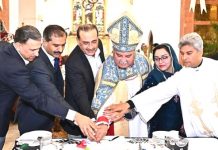Islamabad, July 20 (TNS): A majority of banned organizations have managed to contest the upcoming polls either by changing its name or using the platform of other contesting parties.
As per the analysis of registered political parties list released by the election watchdog, it was unearthed that a number of parties repeatedly banned by the ECP somehow managed to contest the upcoming electoral fray by changing their names in order to dodge the supervisory body.
The analysis showed that Islami Tehreek Pakistan (ITP) with old name Tehreek-e-Jaafria Pakistan (TJP) which is banned since 2003 is part of Muttahida Majlis Amal in upcoming polls while another banned organization Lashkar-e-Taiba (LeT) which is banned since 2002 has been contesting election under the umbrella of Allah-o-Akbar Tehreek.
Interestingly, ITP is enlisted in ECP list but also placed in the list of banned organization proscibed by the Ministry of Interior while Lashkar-e-Taiba (LeT) or Jamat-ud-Dawa (JuD) is not allowed to contest elections and also in the list of banned organisation but it has launched over200 candidates from the platform of Allah-o-Akbar Tehreek (AAT), out of its total 260 candidates.
Milli Muslim League (MML) has decided to use the platform of AAT to contest the upcoming general election, after country’s poll panel rejected for a second time an application by the Milli Muslim League.
Analysis revealed that around 200 candidates backed by the MML will contest the July 25 election under the banner of AAT, which is already registered with the ECP.
Another banned organization that could not get green from the Ministry of Interior, Sepah-e-Sahaba Pakistan (SSP) or Ahl-e-Sunnat Wal Jamaat (ASWJ) has also aggressively electioneering to collect maximum seats or with seat adjustment at a local level with different major political parties.
As many as 86 candidates have been contesting election from the platform of Pakistan Rah-e-Haq Party which is although registered party with the ECP but the party was launched and run by a former provincial leader of banned Sipah-e-Sahaba Pakistan.
This party had contested 2013 election under the banned Mutahida deeni mahaz, an alliance of the religious parties, including the Jamiat Ulema-e-Islam-Sami (JUI-S) and Ahle-Sunnat Wal Jammat (ASWJ). This party has again received the support of leaders and workers of many banned terrorist organizations.
It is pertinent to mention here that the Senate body took exception over the matter and urged ECP to take strict notice of the issue and if the law required an amendment, a proposed amendment should be presented to parliament.
A similar issue was echoed in the Senate session on Monday when a question was raised about allowing over 200 candidates of the proscribed organizations to contest the upcoming general elections.
Parliamentarians have viewpoint that in total 120 enlisted political parties with the Election Commission of Pakistan (ECP) and two major political alliances, several banned political parties have been contesting election director on the platform of political parties.
As many as 64 extemist organizations are banned in Pakistan proscribed by the Ministry of Interior.
Some analysts believe that while the decision to disqualify MML from participating in general elections is laudable, many other hardline radical groups are registered with ECP under new names and identities.
The point of concern is the registration of extremist political parties, such as Tehreek-e-Labbaik Pakistan or Ahl-e-Sunnat-Wal-Jamaat, who are contesting these elections. The National Action Plan clearly instructs the government to take measures to bar religious extremist parties,” they added.
The National Action Plan is a 20-point strategy adopted in 2015 to combat terrorism. The plan states that no banned groups can operate in the country by changing names or identity.
The electoral body said it was vigilant and aware of the concerns expressed by political parties and would not allow any banned group to participate in the elections. The Election Commission works according to the law and constitution of the country, an official of the commission said.














